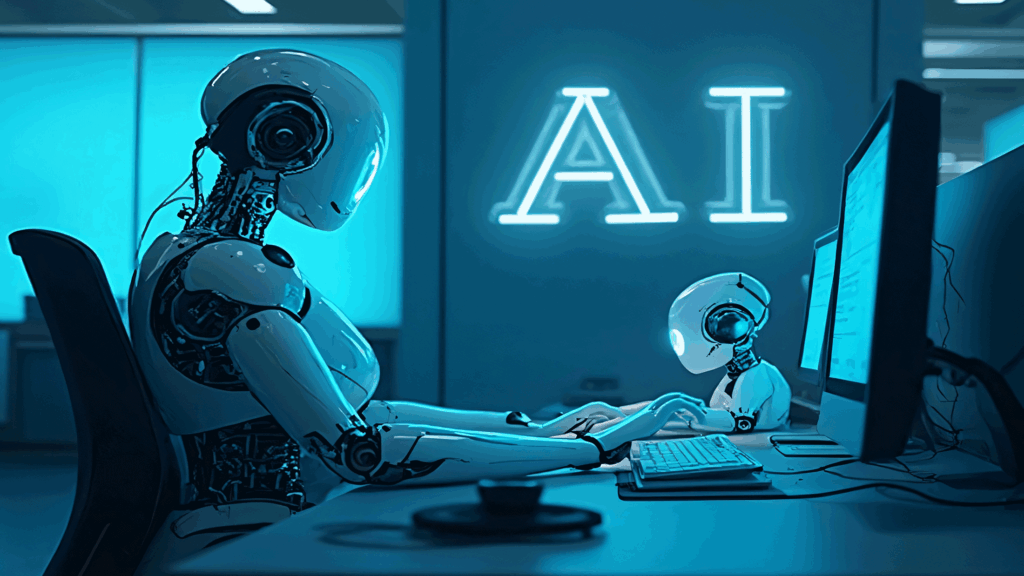The rapid adoption of artificial intelligence (AI) is drawing comparisons to the cloud boom of the past decade. However, while the use of AI is expanding rapidly, a new report reveals that understanding of its impact remains shallow. According to a survey by Hostinger, nearly 80% of companies are either using or planning to use AI. Yet, a separate report by Adecco Group highlights a concerning gap: only 10% of C-suite leaders feel their organizations are fully prepared for the disruption AI brings.
Among the estimated 359 million companies worldwide, approximately 280 million have integrated AI into at least one function. This development comes as businesses scramble to adopt AI technologies, often without the necessary groundwork, leaving strategies fractured and confused. The report underscores that AI is only as effective as the data supporting it, and most companies are missing robust data strategies.
The AI Adoption Gap: From Experimentation to Enterprise Value
While CEOs are increasingly embracing AI, the implications for workers remain uncertain. A growing number of small businesses are leveraging AI tools for tasks such as writing emails, analyzing data, or generating content. Larger companies may establish dedicated teams for AI implementation, but smaller firms are transforming operations with lean, sometimes improvised approaches.
Despite the enthusiasm for AI, readiness does not necessarily follow adoption. The gap in strategy is evident, as 60% of leaders expect workers to update their skills, yet 34% of companies lack a formal AI policy. According to Adecco, over half of CEOs acknowledge that their teams struggle to align on priorities, and only a third of businesses are investing in the necessary data infrastructure to address these challenges.
Challenges in Aligning AI Strategies
A small group of “future-ready” companies is developing more responsive strategies by supporting continuous learning and relying on enterprise-wide insights to shape their AI direction. Adecco’s CEO, Denis Machuel, emphasizes the importance of a human-centric approach to AI-driven transformation. He states,
“AI-driven transformation must be human-centric.”
Many companies rush into AI adoption without a clear understanding of what sets them apart, resulting in scattered or redundant projects. As Stendera explains,
“Without enterprise-wide insight, AI efforts become siloed and misaligned. Enterprise Architecture can help focus AI initiatives on what truly sets a company apart.”
By mapping their unique strengths and workflows, organizations can guide AI deployments that reinforce strategic priorities rather than dilute them.
Looking Forward: The Path to Effective AI Integration
AI adoption depends not just on investment but on introspection. It is not a magic fix, and companies that do not understand their needs from AI will struggle to use it effectively, potentially leading to catastrophic results. The move towards AI requires a strategic approach that aligns with a company’s core objectives and capabilities.
As the landscape of AI continues to evolve, companies must focus on building robust data strategies and aligning their AI initiatives with their broader business goals. This involves investing in data infrastructure, fostering a culture of continuous learning, and ensuring that AI efforts are integrated across the enterprise. The future of AI in business hinges on the ability to harness its potential while maintaining a clear vision of how it can drive value and innovation.
 Stellantis and Leapmotor’s Carbon Credit Deal: A New Chapter in EV Strategy
Stellantis and Leapmotor’s Carbon Credit Deal: A New Chapter in EV Strategy Top Foldable Phones of July 2025: A Comprehensive Guide
Top Foldable Phones of July 2025: A Comprehensive Guide USAID Funding Cuts Could Threaten Millions Globally, Warns Former Chief
USAID Funding Cuts Could Threaten Millions Globally, Warns Former Chief Ethereum vs MAGACOIN FINANCE: A Battle for Inflation Hedge Supremacy in Q4 2025
Ethereum vs MAGACOIN FINANCE: A Battle for Inflation Hedge Supremacy in Q4 2025 England vs India 2nd Test 2025: How to Watch Live from Anywhere
England vs India 2nd Test 2025: How to Watch Live from Anywhere